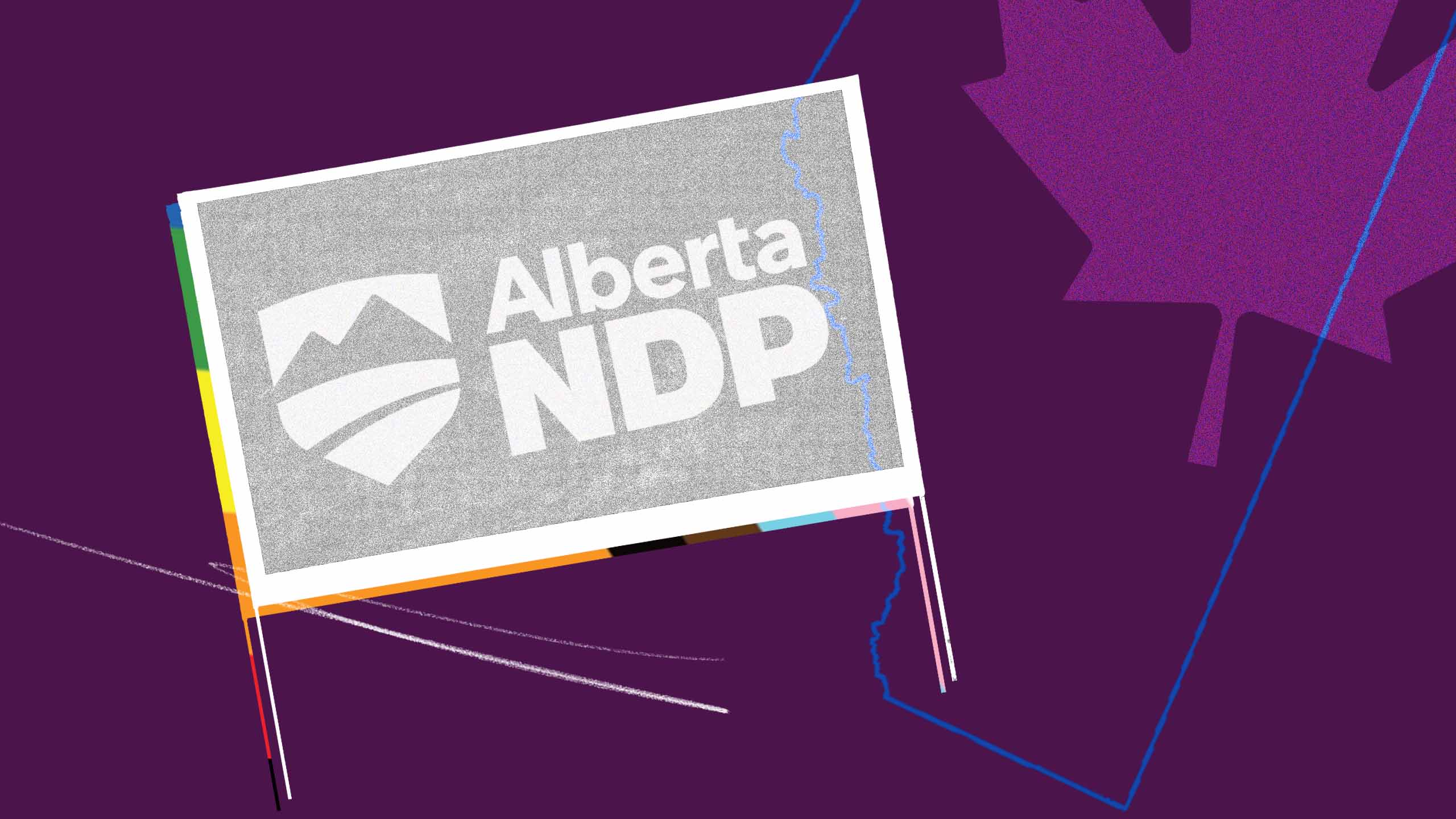It’s time LGBTQ2S+ people outside these places stopped writing off the queer people who live within them, and worked in solidarity to achieve pro-queer victories.
By all indications, Canada’s most conservative province will experience a major leadership change later this month.
Alberta’s left-leaning New Democratic Party (NDP), which was in power from 2015 to 2019, has consistently led the governing United Conservative Party (UCP) in recent polling. Most telling is the swing city of Calgary, where the winning party tends to be the one that forms a provincial government. There, polling by CBC News last month showed the NDP with a five-point lead over their right-wing rivals among decided and leaning voters. Compare that to the outcome of the last election, in 2019, where the UCP won the city by 23 percentage points.
All of this is good news for Alberta’s queer community, especially.
Four years of conservative government have been an almost unmitigated disaster for LGBTQ2S+ people in the province.
In 2019, under former leader Jason Kenney, the UCP rolled back NDP-era privacy protections for members of gay-straight alliances, allowing teachers to notify parents if students join one at their school. It did so despite widespread protests from LGBTQ2S+ advocates across the province.
That same year, a UCP backbencher introduced Bill 207, which would have allowed health professionals to deny care and referrals to patients based on such personal factors as a patient’s queer or trans identity. That bill died in committee, but it is emblematic of the culture of Alberta’s governing party, which is vehemently queer- and transphobic.
The current UCP leader, Danielle Smith, has a track record of standing by while fellow members espouse hateful rhetoric about LGBTQ2S+ people. In late March, the UCP candidate in Lethbridge-West, Torry Tanner, resigned after a campaign video circulated on social media in which she peddled the transphobic myth that teachers are helping students change their gender identities without parents’ knowledge or consent. Smith accepted the resignation, but has yet to apologize for not properly vetting Tanner in the first place. It’s doubtful she ever will. This is, after all, the same Danielle Smith who almost a decade ago refused to condemn Wildrose candidate Allan Hunsperger for telling gay people they “will suffer the rest of eternity in the lake of fire.”
Because the UCP is actively hostile to LGBTQ2S+ people. At the party’s most recent annual general meeting, in October 2022, a resolution “uphold[ing] the rights of parents and caregivers so as not to require them to affirm or socially condition a child in a gender identity that is incongruent with the child’s birth sex” received overwhelming member support.
While the NDP is far from perfect—their talk about LGBTQ2S+ rights wasn’t reflected in their spending priorities when they last formed a government, for example—the party’s likely victory late this month would be a breath of fresh air.
In a place with as long a history of electing right-wing politicians as Alberta, hope is a rare and dangerous thing for those on the progressive end of the political spectrum. It’s also an important one.
Hope fuels action.
It’s the reason why despair is so destructive. Without the hope that change is possible, there’s no reason to do anything to make change a reality. People need to believe that a different, better world is attainable if they’re going to fight for it.
Now to be sure, there are no shortage of reasons for the LGBTQ2S+ community to despair. The wave of anti-trans legislation sweeping the United States. The normalization of hateful queer- and transphobic rhetoric in political and popular discourse. The fact that someone with as contentious a relationship with the queer community as Danielle Smith is currently leading a major Canadian province. All of this is reason enough for LGBTQ2S+ people to throw their hands up in the air and embrace political doomism.
But that is an impulse that must be resisted. And it starts with rejecting the narrative that places like Alberta are political lost causes.
Conventional political wisdom says that certain places are unwinnable by the political left. Alberta, the American Deep South—these are places where conservatism and regressive politics will always prevail.
That’s not true, though.
Years of gerrymandering and racist voter suppression have made it difficult for progressives to win elections in the Deep South, true. And the almost total neglect of Alberta by progressive political parties historically has meant conservative politicians have been voters’ only real option in that province, yes.
But the remedy isn’t to write these places off. It’s to recognize that their conservatism is inherently fragile, and to redirect activist efforts accordingly.
Why, after all, have Republicans in the Deep South had to rely so heavily on gerrymandering their electoral districts if not because they know that they would lose if they didn’t? Why are Alberta’s governing Conservatives so hostile to Canada’s Liberal federal government if not because they know that centrists, maybe even progressives would win in the province if they actually campaigned there?
That’s the lesson of the NDP’s victory in the 2015 Alberta provincial election, and it will be the lesson again if and when the NDP prevails in the upcoming election in May: that the conservative heartland, Alberta, is an eminently winnable place.
This matters for LGBTQ2S+ people both inside and outside the province.
Instead of condemning queer Albertans to a lifetime of queerphobic government policies, or telling them their only hope is to move to more progressive shores, the larger LGBTQ2S+ community should be investing in Alberta’s queer community: most significantly, by donating to Alberta’s queer organizations, activist groups and political movements like the NDP that support queer causes. Not as an act of charity, but in an effort to win in the province.
The point of queer solidarity is to make life better for queer people everywhere, and not just in the places where queer-friendly political victories are assured. And that means targeting the “unwinnable” places, too, as national queer organizations and as individual people. It means doing everything the community can to come out on top in Alberta. Which, right now, means contributing the community’s time and financial resources to making an NDP victory in the province assured.


 Why you can trust Xtra
Why you can trust Xtra


